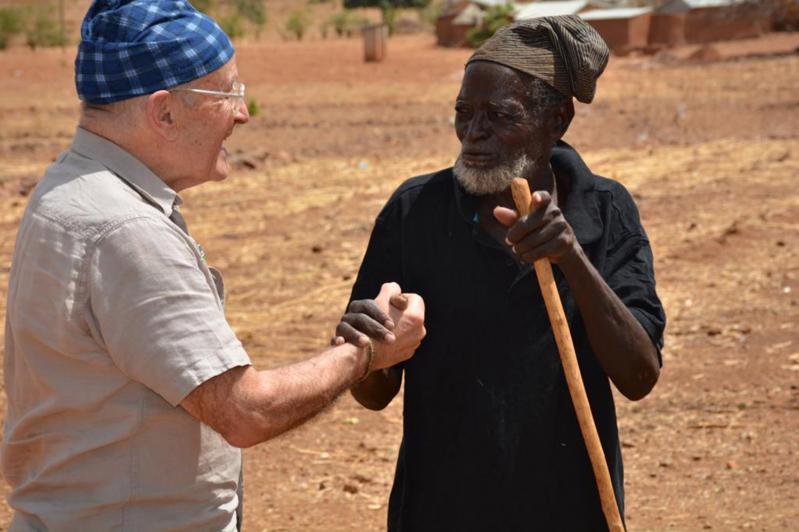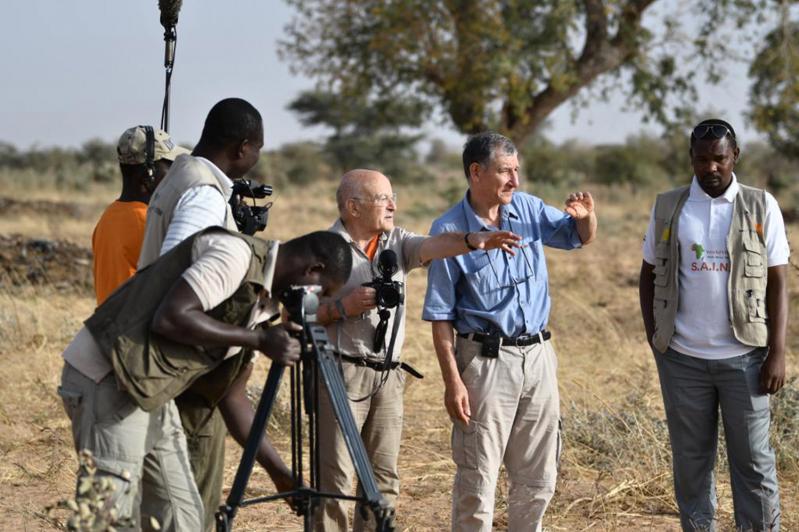"Maybe I should say it's not the very first documentary I've made," Volker Schlöndorff, the German filmmaker, said about "The Forest Maker," his first feature-length documentary, which will be screened at the Hamptons International Film Festival. "Ever since I was an assistant director to Louis Malle, I've done reportage documentaries, and in the '60s and '70s, with a group of German filmmakers, we made 'Germany in Autumn,' and other films. So, I'm not totally a novice to working with the camera."
He was being wry, of course, because Volker Schlöndorff calling himself a novice moviemaker is like Serena Williams calling herself an amateur tennis player.
The "group of German filmmakers" he referred to was, in fact, a new generation of German directors back in the 1960s -- Werner Herzog, Rainer Werner Fassbinder, Margarethe von Trotta, and others -- who kickstarted the New German Cinema movement. Mr. Schlöndorff's "Young Torless," which he directed in 1966, is considered one of the most important films of the movement. However, it was his adaptation of "The Tin Drum," a novel by Gunter Grass, that gained him worldwide fame in 1979, winning an Oscar and the Palme d'Or.
As a director, his list of work is long and illustrious, spanning the decades and including work with major actors. His last feature film was in 2017, called "Montauk," starring Stellan Skarsgard and Nina Hoss, based on Max Frisch's 1975 novel of the same title.
Until recently, Mr. Schlöndorff owned a house -- "a beach cabin," he said -- in Amagansett and was involved in the rebuilding of the Sag Harbor Cinema.
"So, it will be very exciting to be back at the Sag Harbor Cinema after [several years] when I showed 'Diplomacy' there, also during the festival. Soon after that it burned down," he said.
"The Forest Maker" is about Tony Rinaudo, an Australian agronomist who developed a reforestation method for farmers in arid areas. Mr. Rinaudo lived and worked in Africa for several decades, implementing his techniques to help regreen vast sub-Saharan regions of the continent that have experienced extreme deforestation and desertification. In 2018, the "boss of all farmers," as he is known, received the Right Livelihood Award in Sweden, considered to be an alternative to the Nobel Prize. On his way back to Australia, Mr. Rinaudo stopped in Berlin, which is where he and Mr. Schlöndorff met for the first time.

"Six weeks later I joined him in Mali," Mr. Schlöndorff said over Zoom from Berlin. "I had my little 4K [video] camera that was just for me to have a look. But then I realized that in documentary there is no second time, you have to do it immediately. So, I hired a local cameraman and sound man from Mali and that was the team. Then I moved on to the next country, and I hired again a local cameraman and a sound man and so on. And this formula was, of course, very easy. I had always two guys who spoke not only English or French, but they spoke one of the local languages. So, for me, it was one long adventure. And it was only when I sat in the editing room, I realized, Oh my God, where's the screenplay? I really didn't know you had to -- were supposed to -- have a script for a documentary," he said, laughing in acknowledgment of the fact that despite decades of experience behind a camera, there were still things he had to learn, even at 83.
"So, I had to reinvent. For five months, I went back and forth through the material in search for a structure."
The result is what he calls "a documentary essay," an up-close study of the quirky yet charismatic Australian shot over three years. Most captivating is not Mr. Rinaudo's farming techniques -- partly because there's no dramatic before and after; everything looks parched from start to finish -- but the scenes of the African villagers with whom the conservationist converses fluently in their regional language.
Here, during village meetings and interviews with the kind and gentle people of Mali and neighboring countries, is where Mr. Schlöndorff takes over as a boss behind the camera. He is able to convey the optimism and openness of a people who understand that only they can repair the environment that they themselves once destroyed, for the future of their livelihoods and those of their children.
Ultimately, this is Mr. Schlöndorff's first documentary essay about humanity at its best, brittlest, and most beautiful.
"The Forest Maker" will be screened on Friday at 4 p.m. at the East Hampton Cinema and on Saturday at 5:45 p.m. at the Sag Harbor Cinema, with a discussion afterward.




